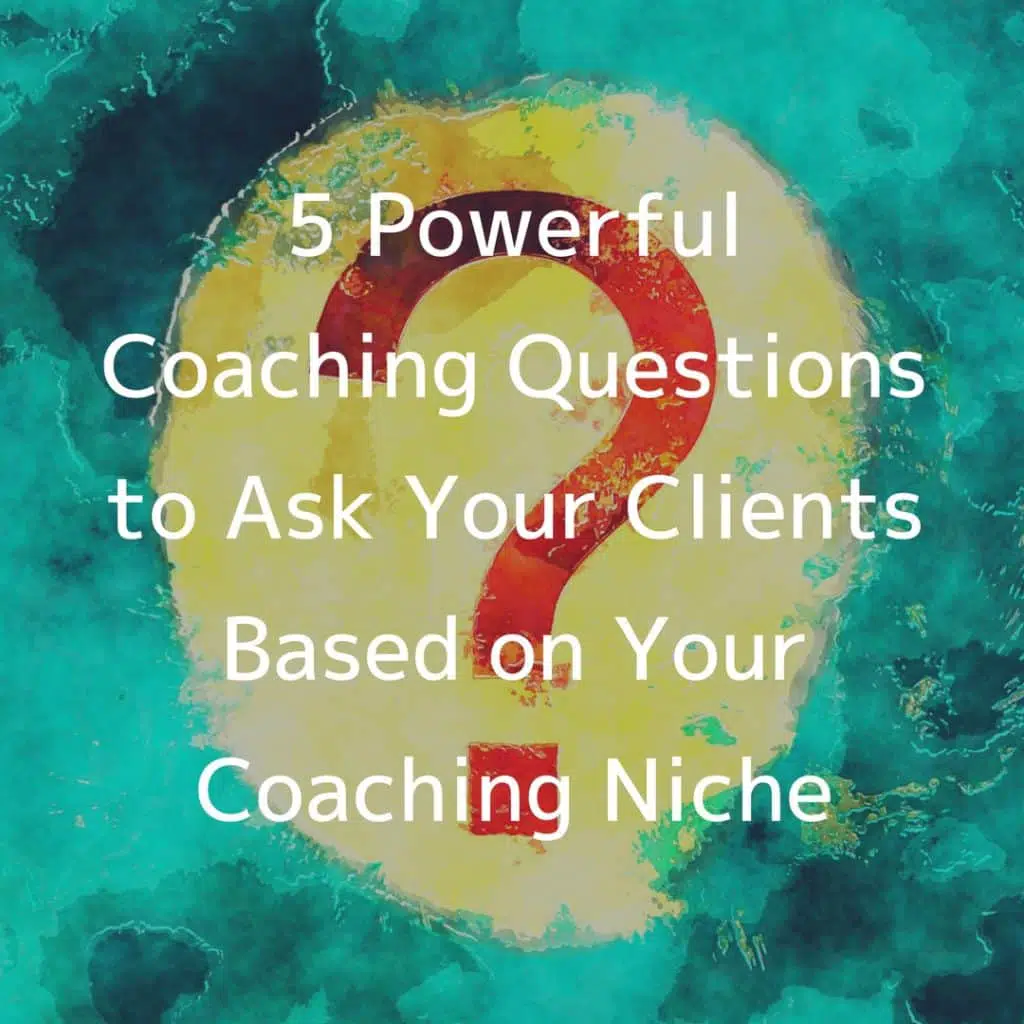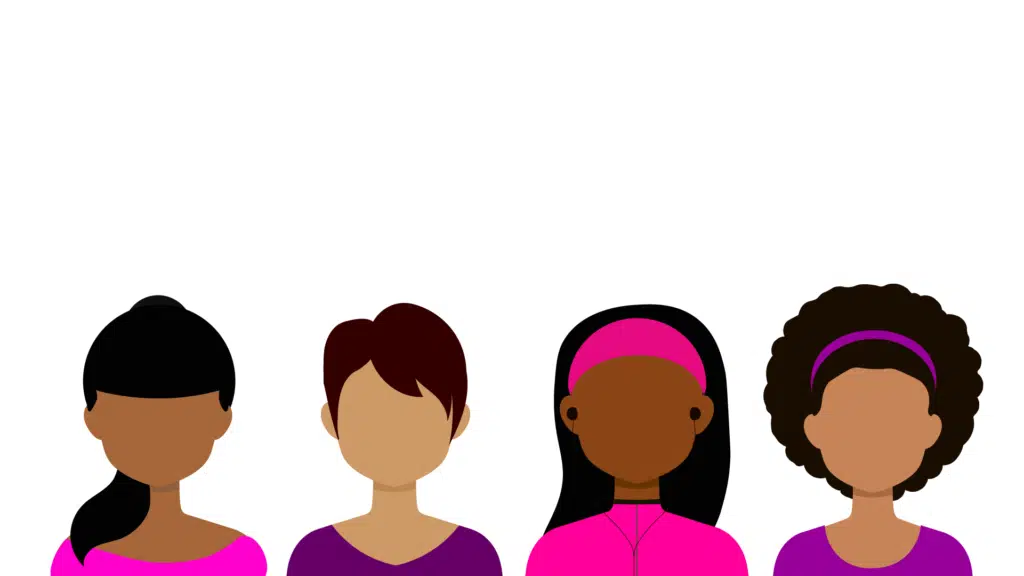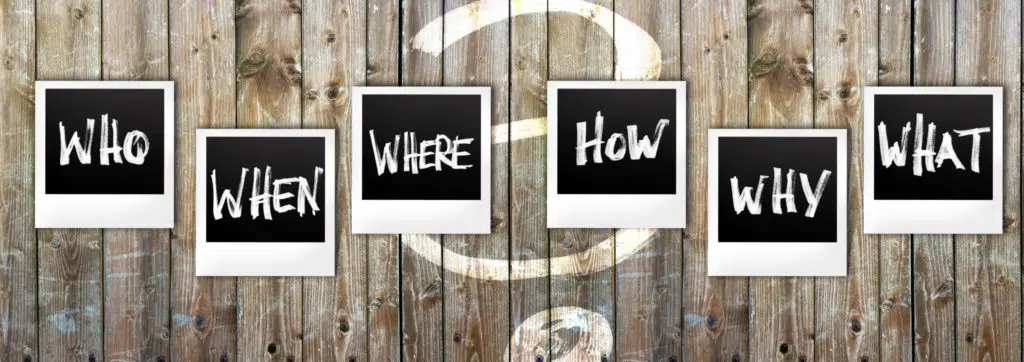
Missed my free coaching webinar last time around? You’re in luck because you have another chance to sign up for my exclusive webinar here. You’ll learn all about the art of building a six figure life coaching business, discover how to finally get paid $5000+ for your coaching, learn how to get an unlimited flow of high ticket clients and get an insight into the right coaching questions to ask your clients. So, what are you waiting for? Click here to secure your spot.
No matter who you are, if you have ever tried to help someone through a crisis, you know that asking the effective questions about their struggle is essential to understand the scope of their problems. Whether it is a client or a friend, it is difficult for people to truly be vulnerable in front of someone. People tend to minimize the extent of their struggles, and even the effect of these struggles on their lives.
Sometimes, people might not even be self-aware enough to know the extent of their struggle, or how it is affecting them. If they don’t even know the full extent of their problems, it is doubtful that they can ever effectively help themselves through it. This is where a coach can come in a make a big difference in their lives.
A good coach armed with powerful questions can not only help a client get to the root of their struggles, they can even help the client come up with a powerful plan that can change their life for the better. After all, what is a better way to get to know all about a person than asking them many questions about it in a kind manner?
We’ll talk about what these questions are, how they can help, the impact that they can have, how you can communicate more effectively with your client, etc.
Before we do all that though, we need to talk about a few basic things.
- What are coaching niches?
- Why are certain questions important?
- What types of questions are powerful for coaching?
- Which questions can I be asking?
- What does success look like to you?
- Why do you think you want that?
- Based on how things are right now, what would you see in x amount of time?
- How far would you go to defend something that is important to you?
- What is your biggest obstacle right now?
- Frequently Asked Questions (FAQs)
What are coaching niches?
Life is diverse, and the struggles people face in their lives are equally diverse. To reflect that, life coaching industry has parallel niches that best fit the type of help you are looking for. Life coaches also fall into niches depending on the needs of their client. You might have decided to focus on to a niche because of your own past experiences, your own expertise in the field, or a certain amount of relevant training you have.
No matter what your niche in life coaching ends up being, it will be essential for you to form a good bond of communication with your client. If they do not trust you, they can not talk to you. If you do manage to inspire trust in your clients, then comes the part where you focus on getting your clients to actually talk to you openly.
Why are certain questions important?

Due to behavioral and social restrictions, most of us adopt a way of talking that keeps emotions and our own failings out of our conversations. This affects the way people respond not only to their friends but also their guides and coaches. To understand and help your clients to best of your ability, you will find it useful to ask them several types of questions. Asking questions is a good way of directing a conversation if you are aware of the conversational flow of the person.
It is important to use the questions in a natural way instead of making your client feel awkward or cornered, as that will rarely help, if at all. Talk to your client as you would with a friend. Give them the space to express themselves, and make them feel heard. When people feel that they are being heard, they respond positively to lines of inquiries.
You want to ask many questions because you need them to do a few things that are necessary to the process of coaching: getting to know your client, having your clients self-reflect on their answers, and having the client hear their own thoughts. Sometimes people can have many realizations about their lives and their choices when they go through this process because when the therapist acts as a good sounding board, things can become much clearer.
What types of questions are powerful for coaching?
As long as you empathize with your client, you can use any amount of question to have a good idea about where they are in their lives, why they are stuck, what stage of their progress plan they are in, how you could be helping them, how they could be helping themselves etc.
- The questions could be based on how far along in the coaching process the client is. Ask questions that help in:
- First session information exchange
- Establishing the topic for the session
- Establishing session goals
- Establishing coaching goals
- Cataloguing the growth, progress
- Revaluating growth parameters and refocusing
- Finishing the session
- Finishing the coaching
- Establishing accountability
- Enforcing accountability
- You could ask questions that help you help your client with self-assessment and discovery. Ask questions that help in:
- Recognising milestones
- Celebrating successes
- Recognising bad behavior cycles
- Recognising values
- Identifying strengths
- Self-belief discoveries
- You could also ask questions that help with recognizing their obstacles and then take that into a discussion of how to overcome those.
- You could ask questions that are open-ended, to let you client fill in information gaps and self-reflect.
- You could ask follow up and reflective questions based on your client’s previous answers. This does two things: it lets your client know that you are listening, and it lets them be accountable. Follow your client’s train of thought. There is important information there.
If you want to learn more about how to grow your coaching business by asking the right life coaching questions, build a six figure coaching business and learn how to get better results for clients in less than half the time, come join my free webinar here!
Which questions can I be asking?
There are endless types of questions, but we’ll give you a few common questions here. Depending on your clients and the type of niche you are working in, don’t forget to tailor these questions in your sessions. When you give your client a cookie cutter experience that is the same as everyone else, it will sooner or later feel disingenuous.
Be kind, empathetic, focused on what they say, and ask them relevant questions. Going through a list that doesn’t fit their experience can do harm to your rapport with your client. When it is evident to your clients that experience is a relevant one that has been tailored based on their goals and progress, they will react more positively to the whole experience.
Remember to follow techniques that some call “why, why, why?” or “how, how, how”. It is noticed that when people are asked questions that begin with ‘why’, ‘how’, or similar cause based questions, the first answer people give is not the core cause. It is merely the direct result before this final result. So keep following up the ‘why’ or ‘how’ questions with more ‘why’ or ‘how’ questions, even up to 5 times, till you get to the core cause of the problem.
Here are 5 common questions that you can use in a tailored way after modifications:
What does success look like to you?
- Follow up: If you could see exactly that tomorrow, what would it look like?
- Follow up: If you could get exactly that, what would it change?
- Context: This helps the client imagine their success in a very real way. This also gives you an idea of how they visualize it, and so you reaffirm that image in their mind.
- Niche-based modification: depending on your niche, you may need to add or modify several follow-ups. For a fitness coach, for example, this could be adding a question like “Would changing your look that way really make you healthier? Or is this purely a visual change you are looking for?”
Why do you think you want that?
Follow up: as one of the ‘why’ questions, keep asking more ‘why’ based questions till you have the core cause.
Context: This helps the client understand their own goal. This also gives you an idea about their relationship this goal, and how you can help them.
Niche-based modification: depending on your niche, you may need to add or modify several follow-ups. You may even want to add an extra “why do you want it this way” depending on your niche. This allows you to make sure that the direction of their growth is correctly aligned.
Based on how things are right now, what would you see in x amount of time?
- Follow up: Why?
- Follow up: Are you ok with that?
- Follow up: What would you like to see instead?
- Context: This helps the client understand the impact of their current choices, and helps them get an idea of the scale to which their current lies would have to change so they could achieve their goal.
- Niche-based modification: depending on your niche, you may need to add or modify several follow-ups. You may even want to run some scenarios in which you add or remove certain factors affecting their life and then observe how the answer to this question changes.
How far would you go to defend something that is important to you?
Follow up: Why?
Follow up: Why is this idea or person or thing so important?
Context: This helps the client get an idea of what is important in their lives, and exactly how important is it.
Niche-based modification: depending on your niche, you may need to add or modify several follow-ups. You may even want to run some scenarios in which you add or remove certain factors affecting their life and then observe how the answer to this question changes.
Niche-based modification: You can also even use this question to test how hard they will work for their goal. Check how important their goals are as compared to something that is most important to them.
What is your biggest obstacle right now?
Follow up: If this obstacle was removed/overcome, what would be next obstacle?
Follow up: What is stopping you from overcoming this obstacle?
Context: This helps the client picture their world without their roadblock, and even think of short-term goals to achieve on the way.
Niche-based modification: depending on your niche, you may need to add or modify several follow-ups. You may even want to run some scenarios in which you add or remove certain factors affecting their life and then observe how the answer to this question changes.
Niche-based modification: you may also want to modify this question in terms of scale. Have your client express the scale to which this obstacle affects their progress.
Each client is different, and so are their needs. Make sure to assess your client’s needs well so you do not confuse them with irrelevant lines of questioning. If you have tailored your questions well, you can expect to get more honest and relevant answers from your clients. This will make your work easier, and help them progress faster.
Frequently Asked Questions (FAQs)
What are good coaching questions?
Great coaching questions create focus, create understanding and get the person to come up with the answer on their own. The process of understanding what is happening and what needs to happen is the key to the interview, and great coaching questions play a critical role in this process. Here are some sample questions that you can use to get the best out of your conversations. 1. How would you define this problem? 2. What are the causes of this problem? 3. What are the consequences of not solving this problem? 4. What are the benefits of solving this problem? 5. What action steps do you plan to take to solve this problem?
Why are certain questions important?
Without good questions, everything else you do is a waste of time. The right question can lead to a whole train of thought. Questions make us think, they activate our minds. If you are the manager of a team, you must clearly communicate what the mission is. The first thing a good manager does is to establish a purpose. By establishing a purpose and focusing on the core questions, the manager allows his team to make the most of their expertise and creativity. As for individual knowledge, ask questions about every single thing you don’t know. If you’re an artist, ask questions about your medium and your tools. If you’re a student, ask questions about the subject. This will transform you from impostor to expert and that’s the primary way to get to the top.
What are the powerful coaching questions?
Powerful coaching questions are: What’s the best thing that could happen? What’s the worst thing that could happen? What’s most likely to happen? What’s your story? Where’s the evidence? What’s likely to be the result?
What questions would you ask a client?
One can ask the following questions: Why do you think your business needs a video? Be sure to ask these questions: What kind of videos are you looking for? What are your objectives? Why do you think a video will help you achieve your goals?
What is the purpose of asking powerful questions?
Powerful questions help you to establish a positive mindset, enhance creative thinking, and aid in problem-solving. If you’re in a rut and can’t get yourself out of it, use powerful questions to change your focus. There are times when you don’t know what you want or what you need, but when you ask powerful questions you help get the answers you are looking for.












yes
Hi there ? Thank you for dropping by. Please send your queries to [email protected] so we can accommodate your concerns.
Your posts are always a great read.